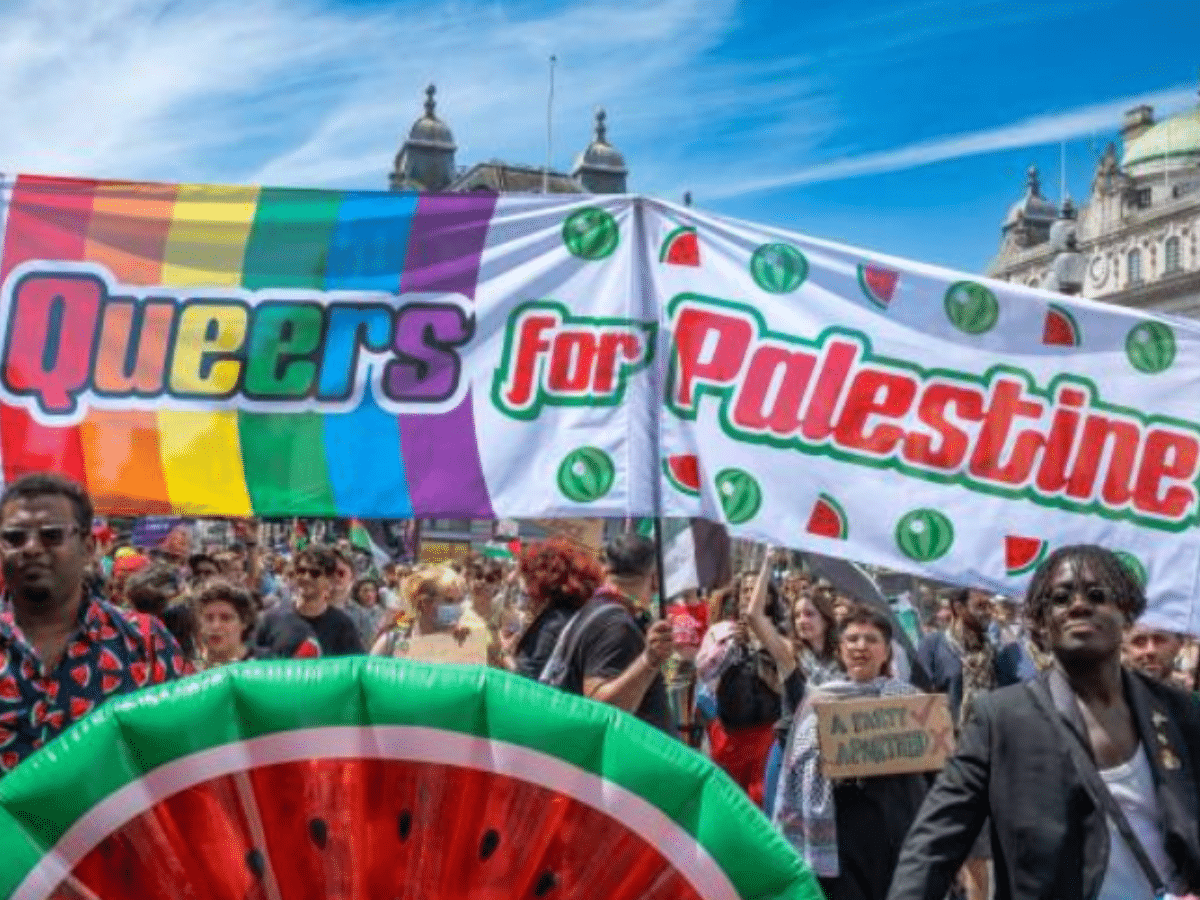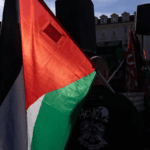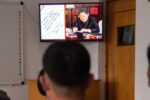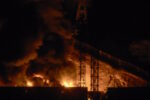For many of us who have lived through the 70s in Britain, the rise of fascism today brings back many disturbing memories, whilst making us aware of the important differences between the National Front of the 70s and the fascists of today.
Not only is massive corporate power and money backing today’s fascists, they are a global movement that target Muslims, people of colour across the board, asylum seekers, and that small and extremely vulnerable minority, trans people.
Fascists and the feminist movement: trans people’s rights in the crosshairs
The vicious attacks on trans people, particularly trans women, have become commonplace. A Supreme Court judgement in April this year has partly fuelled this. It ruled that under the Equality Act 2010, the protected category of women refers to biological sex only. This ruling implies that trans women cannot legally use women’s spaces such as toilets, male police officers can strip-search them, and in case of miscarriages of justice, the state can hold them in male-only prisons. Notorious transphobe, billionaire author J.K Rowling, reportedly partly-funded the legal case. She sinisterly named it “TERF VE Day”.
The effect on trans women’s lives is catastrophic. Shortly after the ruling, one anonymous trans woman outlined plans to leave the UK:
I’m a senior health professional with a career I love. I’m a married woman with a husband I love. I’m a daughter, sister and friend. But all this has just been shattered.
The ruling is clearly a victory for an increasingly far-right establishment. But the response to the judgement from older cis feminists of colour I spoke to has been varied. It has ranged from eager acceptance “the law will protect real women”, to confused dismissal “possibly being trans is just a young people fad which will go away”, to anger that masculine-presenting women will now face more humiliating questions in women’s toilets than ever before; to an encouraging total rejection – in the words of one Muslim lesbian, “I stand against hate. All kinds of hate!”.
Feminist movement has never been a monolith: a long history of racism
But this is to be expected. The feminist movement of which I regard myself a part has never been monolithic. In the 70s and 80s, it was the issue of racism which divided us.
When Asian women from Awaz, the first South Asian feminist organisation in Britain, spoke at meetings of the racism we faced, and how for us race and gender were inextricably linked, white women often cried or felt personally attacked – just as JK Rowling and her fellow transphobes today claim to feel attacked by trans people online.
At times it seemed that we were being told that being accused of racism was somehow far worse than facing racism. The question of what are ‘women’s issues’ was frequently raised. Was it right to speak at feminist meetings about the physical and psychological violence of immigration laws, for example, or should we stick only to the violence we faced in our families and communities?
However, there were also divides among Black and Asian feminists. In 1989, at a time of rising Islamophobia preceding Bush’s Gulf War, Southall Black Sisters (SBS) joined others to set up an organisation called ‘Women against Fundamentalism’. Many of us from other feminist organisations felt that the raison d’etre, and even the name, of the group was hugely problematic, since ‘fundamentalism’ had already become a byword for religious Muslims in public discourse.
This stigmatised many feminists who were practising Muslims and reinforced the idea that Islam was the exclusive source of patriarchy. The differences became increasingly stark as the oppression of Muslim women became a way of legitimising the invasion of Afghanistan, and the war on terror in Britain brought narratives on the excesses of ‘Muslim’ patriarchy often shaped by neoconservative groups like the Henry Jackson Society.
Filia conference: where white feminism and transphobia collide
Today while some of these differences over racism and Islamophobia still linger, battles over transphobia and overt Zionism have joined them. Southall Black Sisters have publicly supported the trans exclusionary A Woman’s Place UK for instance. These new fault lines led, earlier this month, to the spectacular implosion of a 2,500 strong conference in Brighton. Openly transphobic organisation, Filia had organised the event.
Filia holds annual conferences which it describes as the largest annual grassroots feminist conferences in Europe. These gatherings are clearly well-funded and seem very far from any grassroots organising. One of Filia’s most beloved supporters, mentioned with great excitement in their publicity material, is Rowling. Alongside her transphobia, Rowling has also recently publicly revealed her support for Israel. As Lowkey has noted:
JK Rowling’s agent, head of her company and chair of her charity, Neil Blair, fronts an organisation which is funded by the Israeli government and claims to “advance synergy between Israeli bodies & respective agencies & institutions in the UK.
Among other core members of Filia is Julie Bindel, another longstanding transphobe and Zionist.
Filia’s choice of Brighton, which has a strong trans rights movement, was, in the words of Green Party MP Sian Berry, “clearly provocative”. The night before the conference started, trans rights activists allegedly targeted the venue, a council building. They spray painted it with the words “Feminism is the refusal to define women” and smashed a window. Trans rights activists continued protesting outside the venue for most of the conference.
Indoors, it all kicked off right from the first plenary with a speech by Rahila Gupta from SBS – also the author of an official Filia book – a supporter of Palestine who maintains an explicitly anti-Hamas position. Her carefully calibrated speech, calling in effect for a two-state solution, was met with loud shouts of “What about the hostages!”
Transphobes supporting genocidal Israel
Maryam Aldossari, academic and SBS trustee who also spoke at the conference, told me:
when Rahila asked women to stand up for a free Palestine only about a hundred out of 2500 did so, I was shocked!
On Saturday, a group of women supporting Palestine held a vigil outside the venue. The vigil was met with aggression, Maryam told me:
They were shouting “You are Hamas! You are not feminists”. Later we held a separate meeting at a community centre elsewhere in Brighton.
Meanwhile, Israel supporters led by Julie Bindel held their own external meeting too. But this was not all. At the Filia disco party, a woman with a Palestinian flag joined others on the stage and Sathi Patel from the anti-imperialist feminist organisation Total Women Victory (TWV) also stood with her in solidarity. Filia organisers called the event’s burly male security guards, and Sathi was according to a TWV statement:
grabbed by her hip and thigh and lifted offstage her feet dragging on the ground and left with bruises.
On the last day Maryam wandered into a room in the venue where a meeting was in progress. There was an Israeli flag in the background. Maryam said that a Filia volunteer was running it. Filia meanwhile emailed attendees that “men’s wars” should not be allowed to divide women. Clearly the hundreds of thousands of Palestinian women Israel has killed in the genocide didn’t count as women. Moreover, nor did the many female IOF soldiers who were perpetrators of the genocide.
Filia has most recently issued a statement invoking the Charity Commission and suggesting, in what could be interpreted as a veiled threat against SBS, that all those who support Palestine are pro-Hamas. This, said Maryam:
is exactly what imperial feminists do to deflect from the genocide.
SBS has also issued a public statement.
Trans people at the heart of the feminist movement
If Filia’s party descended into a display of anti-Palestinian aggression, there was another ‘celebration’ which went according to plan. This was a session celebrating the Supreme Court judgement on trans people which Filia had supported wholeheartedly. It involved a discussion between those who had campaigned for the law: ex-SNP MP and Filia Trustee Joanna Cherry, and Kate Barker-Mawjee, CEO of the LGB Alliance.
Cherry once argued that trans young people:
must be treated like any other children with psychological problems.
She has called for Scotland’s only gender identity clinic to be closed. LGB Alliance is a rightwing organisation allegedly close to Boris Johnson.
The overt message of the panel and of Filia as a whole was that trans women were merely recent encroachers in the feminist movement. As veteran of the Gay Liberation Front Frankie Green has written:
There were trans people there from the beginning, of course, just as there have always been trans people and there always will be…Why should even a fraction of the fury that should rightly be directed at perpetrators of the epidemic of male violence against women and femicide and the institutions that enable them, the governments who cut funding to refuges or don’t punish rapists, and systems that subjugate women globally, be targeted at trans women?
Palestine: a ‘defining issue for feminism’
In contrast to Filia’s transphobic perspective, feminist organising must centre trans women, as US-based trans journalist Meredith Talusan urged in an impassioned 2018 essay:
A successful feminist movement must include us not merely as token individuals but with our full selves and the revolutionary perspectives we represent.
Will Filia’s implosion mean anything for the future of the feminist movement in Britain? For me, Filia is a turning point which allows us, cis and trans, young and old, to reaffirm our feminist principles. Specifically, the importance of self-determination, or as the spraypainters outside the conference had proclaimed, that “Feminism refuses to define women”, and the centrality of anti-colonial struggle, today epitomised by Palestine.
As Palestinian feminist Afaf Jabiri reminds us, in the context of the ongoing Nakba:
the losses that we mourn are not only those who were martyred, but those who were never lucky enough to be born… Given that settler colonialism threatens both potential and future, and that feminism must confront the pressing issues of our time in order to shape a better future, Palestine becomes not only a feminist issue but a defining issue for feminism.
Featured image via the Canary













